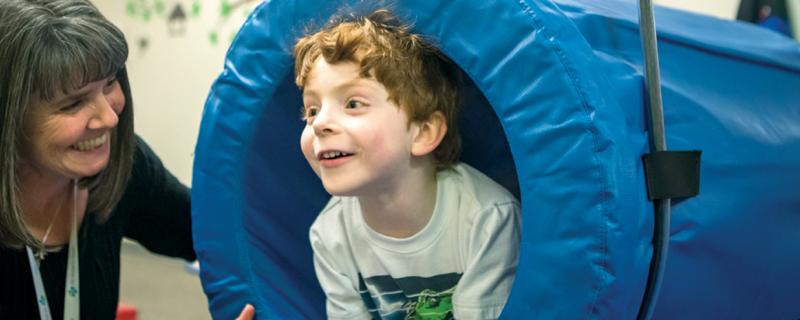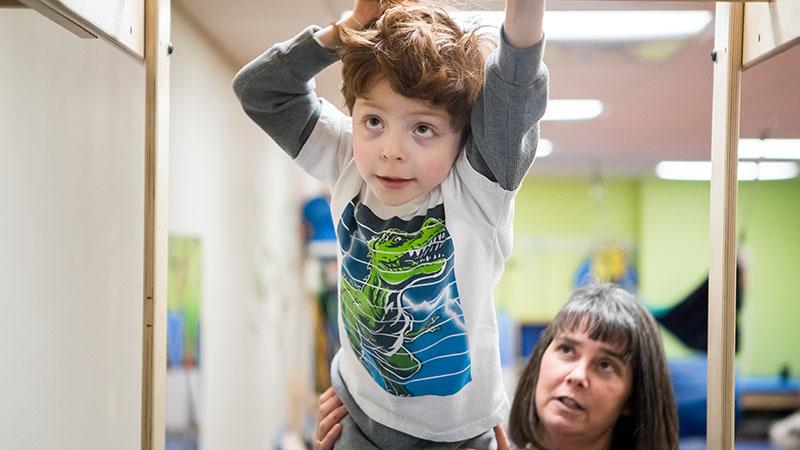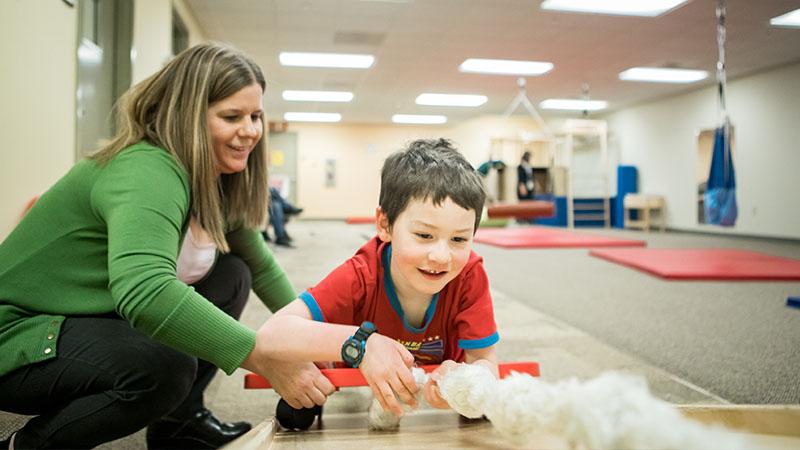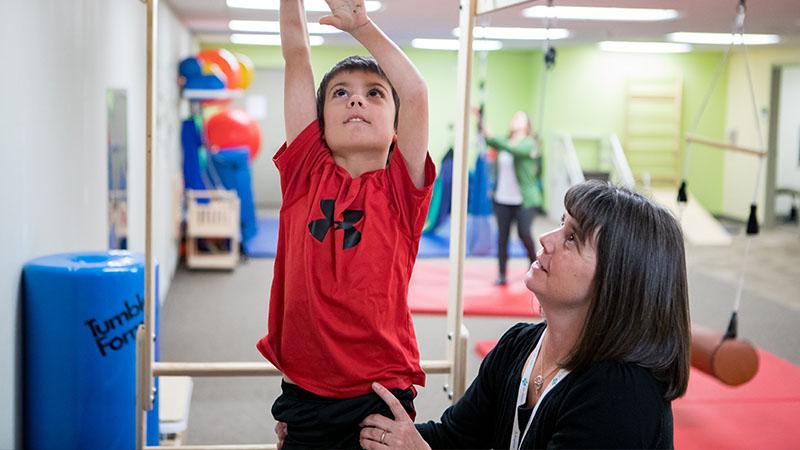Pediatric therapy at St. Peter’s Health helps children with developmental, neurological, and orthopedic disorders that affect their ability to perform the "jobs" of children. We work with children—and their parents—to develop ways to move, play, dress, eat, communicate and succeed in their daily lives.
St. Peter’s Health's pediatric therapy includes physical therapy, occupational therapy and speech therapy.
St. Peter’s Approach to Pediatric Therapy
From infancy through adolescence, a child’s developmental needs can be met with proper early intervention.
Our team of occupational therapists, physical therapists and speech therapists work together with your family to maximize your child’s potential for physical, emotional and developmental growth.
Our pediatric therapists provide thorough evaluations and treatment to work on improving skills in all developmental areas of life.
Quality Pediatric Therapy at St. Peter’s
- Our pediatric rehabilitation program offers a child-centered therapy facility. We have a child and family friendly waiting room and eight private treatment rooms for individual sessions with spaces for feeding, table top activities, sensory integration, gross motor movement, and opportunities for parent observation.
- We have a large, open play gym with multiple swings, a loft space with slide and monkey bars, and a large area for scooters, bikes and play. Our gym area allows for interactive, social treatment with other patients as appropriate.
- We offer aquatic therapy for our pediatric patients at our satellite clinic in Capital City Health Club.
- We are the only program in Helena that includes physical therapy (PT), occupational therapy (OT) and speech therapy in one pediatric rehabilitation program. This enables us to use a team approach to collaborate between PT, OT and speech therapy to provide more comprehensive treatment.
Pediatric Occupational Therapy
Occupational therapy (OT) analyzes the functional performance of children to help them better participate in activities of daily living.
Pediatric OT treatment addresses:
- Motor skills and motor planning
- Bilateral coordination
- Fine motor skills (grasping, pre-writing skills, manipulation, scissor skills and handwriting)
- Visual perception
- Self-care, including dressing, grooming, toileting, and bathing
- Oral–motor skills, such as feeding
- Sensory integration and sensory processing, including sensory defensiveness, under registration, sensory seeking and oral aversion
- Play skill development
- Facilitation of self-regulation skills and use of adaptive behaviors
- Splinting
- Adaptive equipment and seating needs
- Parent training, including home programs
- Primitive reflex integration
Pediatric Physical Therapy
Physical therapy analyzes children’s movement patterns to help them access their world more fully.
Pediatric PT treatment addresses:
- Gross motor skills
- Balance
- Coordination
- Posture
- Endurance and strength
- Post-concussion syndrome
- Ankle and foot orthotics (shoe inserts)
- Toe walking
- Adaptive equipment and seating needs
- Aquatic therapy
Pediatric Speech Therapy
Speech therapy (also known as speech-language pathology) analyzes children’s language and speech to help them communicate effectively with peers and family. Speech therapists also assess and treat feeding and swallowing issues.
Pediatric speech therapy treatment addresses:
- Communication, including receptive and expressive language
- Auditory processing, including following directions and recalling vocabulary and concepts
- Oral-motor skills, including eating and drinking food safely
- Articulation and phonemic awareness, including intelligible speech
- Voice and fluency, including the quality of voice and speaking without stuttering
Location(s) of Pediatric Therapy Services
St. Peter's Health Pediatric Rehabilitation
2475 Broadway
Helena, MT 59601




